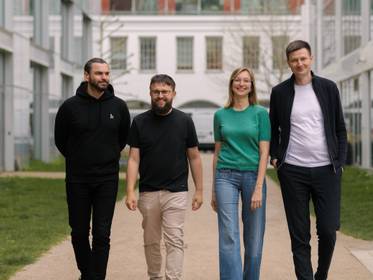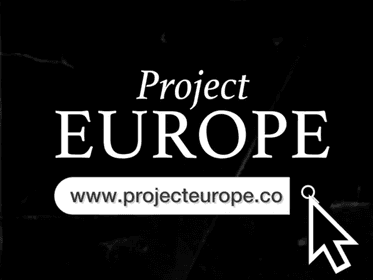How Glami became a European player in online fashion: 5 key ingredients

Michala Gregorová
It is one of those highly successful technology companies well-known among insiders but not seen that often in the media. In 10 years, Glami has become the largest search engine and online catalogue of fashion goods and accessories. It operates in 13 countries, and its customers place almost half a million orders a month. Thanks to Glami, online fashion stores will add CZK 4 billion to their sales this year. Of course, Glami, now led by CEO Ján Kešelák, didn't become a prominent and profitable international company by chance.
-PA6y.jpg)
It took some talented people to make it happen, as well as essential qualities and confident decisions that can be broken down into five categories - the five ingredients for success.
1 It is better to share than to compete
Krzysztof Wierzbicki, Marcin Chwalik and Lukasz Zych started building the fashion search engine Domodi in Poland in 2012. Thanks to their previous collaboration, they knew Tomáš Hodboď and Michal Jirák from Miton - all of them had worked on projects under the Polish group Allegro at some point. The Czech duo specifically worked on the price comparison site Heureka, which Michal founded within the Miton investment group. Tomáš joined shortly afterwards; after Allegro had bought it, he left Heureka as its CEO.
"People discover, choose and buy clothes in a completely different way than other categories of goods," explains Michal Jirák, one of Miton's partners. "We collectively felt that in the fastest-growing e-commerce category, not everything is done yet, so we started looking for a way to make it easier for people in such a fragmented industry to discover their dream products. We shook on it - Miton invested in the launch of Domodi in exchange for a 30 per cent stake.
And so, the Polish team started working with a complete focus on Poland. After a while, it became apparent that their concept was working business-wise. And there was Tomáš Hodboď, with experience from building Heureka, which was an excellent fit for this new direction. "Since we wanted to build a project with the ambition to cover the whole of Europe, we decided to use Tomáš's experience and launch the Czech Glami in parallel with the Polish Domodi," adds Michal Jirák.
Moreover, the collaboration was a two-way street: Miton had a stake in Domodi, and the founders of Domodi acquired a stake in Glami. "What might appear from the outside as a splitting of forces worked as a useful market research, applying two different perspectives on the same issue and sharing know-how," explains Tomáš Hodboď. The sharing of knowledge moved both projects forward by leaps and bounds.
2 If it's not making money, get rid of it
The way Glami will benefit users was clear from the start: it will make it as easy as possible for them to discover fashion pieces that they can then buy. Whether you're looking for a basic black t-shirt, a dress of a particular cut from a sustainable brand or sportswear you have no previous experience with, Glami becomes your guide and will lead you to your purchase in as few clicks as possible. What needed to be clarified was the form it would take.
"Glami started as a tool that allowed you to build an entire outfit from a huge catalogue of clothes. You could also share the sets you created with others," Hodboď explains. "The goal was to build a community of people who love fashion and get data on what they like." But from the data he and his colleagues collected, he discovered this was not the path to success. "So we removed this whole 'social ' layer of Glami that we'd been programming for a few months and focused on where the business can scale quickly so that partner online stores can see it on orders." This radical move shows another key to Glami's success.
The ability to constantly ask uncomfortable questions - "Does this improve the visitor experience? Is the new feature pushing us towards a million orders a month? Will it make us more profitable?" - and focus as much as possible on the core business. The courage to completely redesign or quickly abandon features that don't lead to the entire project's success. These are some of the foundations of Glami's success, according to both Hodboďa and Jirák. "Those decisions are unpopular - you're leaving something the team has spent months working on. But there is no other way," explains Tomáš Hodboďa. "It takes years for this way of thinking to become firmly embedded in the DNA of a company. In the case of Glami, it has succeeded," adds Michal Jirák.
3 An early bet on AI
They decided to build an in-house AI team back in 2018. "It has proven crucial to Glami's position today - our proprietary AI engine is one of the strongest drivers of our success," notes Tomáš Hodboď.
The millions of clothing items the service shows customers cannot be sorted manually. You must know the parameters from the product photo and the unstructured descriptions. In the beginning, this repetitive work was done y by dozens of administrators; today, it is a full-fledged AI task.
"If you want to buy a yellow dress and we have 60,000 in our catalogue, which 20 should we show you?" Tomáš Hodboď illustrates a practical problem. The success of Glami largely depends on the correct answer. The AI is responsible for ensuring that the sorting matches the user's wishes. But the same is true of searching through images or determining which products are similar - through these routes, customers often discover what they like in the case of fashion goods.
4 Find out what the user really wants
Partner e-shops pay Glami for every click that leads to their website. However, they would hardly do this for over a month unless these visits resulted in enough orders. Understanding how users behave is, therefore, extremely important. It's the only way to offer them products that are perfect for them.
"Back in the day, we used to evaluate barely a tenth of what we do today on Glami as part of the user journey on Heureka," explains Michal Jirák. "If you want to understand your customers well and be of comparable value to Google or Facebook for collaborating e-shops, you can't do it any other way. Over the past years, we've been surprised repeatedly by how deep we need to go in data and insights - and that's why we dive deeper and improve our knowledge every time."
Such a shift is rare, as Tomáš Hodboď explains: "We saw many projects that seemingly did the same thing as Glami. They just stayed very much on the surface and ran a bit blind. They gathered many products in one place but established cooperation with e-shops through intermediaries. They didn't care about what happened to the user when they left their site, and thus couldn't correctly evaluate buyer or partner store satisfaction. In doing so, they also lost control of their service, which you can't afford to do in a fast-moving segment like fashion. "
The emphasis on the user is embedded deep in the DNA of the entire project. Glami is proof that when you have a lot of satisfied users and you can give them excellent advice on how to buy, everything else comes sort of naturally.
5 Learn to scale
It's one thing to succeed in your home country. It's quite another to be able to scale a project so that it can work across Europe. From the beginning, Glami was created with the ambition to serve such a large market. It currently operates in 13 countries, most recently expanding into Poland - it didn't need to add a single new member to the team, yet the site has seen hundreds of thousands of visits in the month since launch. This is no coincidence.
"We can add a new country in a few days thanks to the fact that we have built Glami from the beginning as a project that should be able to expand quickly," explains Tomáš Hodboď.
Top-performance marketing also plays an important role. "Our budget for it is more than half a billion crowns a year, and it is managed by a tiny team of just 12 people," current Glami CEO Ján Kešelák suggests. He joined the brand five years ago and was put in charge of international expansion. At that time, Glami was starting to thrive in Romania, and the company had ambitions to expand further. "In practice, this was manifested, for example, by the fact that I joined, and two months later, we were already acquiring a fashion search engine in Greece. That, by the way, has grown 15-fold since then under Glami."
The scenarios of foreign expansion were different - partial or complete acquisition, organic growth and other models. The portfolio of multi-brand multinational fashion e-shops thus plays a vital role in Glami's international development. "If we help them in one country, they logically expand to others with us."
Paths to further growth
In addition to succeeding in more than a dozen European countries in just a few years, Glami has also grown to include people of more than twenty different nationalities. "Today's Glami is an international company that is growing both in business and in the number of team members," notes Ján Kešelák. "We currently have 23 nationalities, so we deal with organizational and cultural challenges. A milestone for us was the acquisition of the Stileo website, which put Italy on the map, the Polish Stileo team, and a second office in Wroclaw."
But Glami's growth continues. "We will continue to do what we already do well - expanding abroad, improving existing features and launching new ones, and further developing AI. After all, fine-tuning things is one of the ingredients of Glami's success," recalls founder Tomáš Hodboď, pushing Glami forward on a strategic level after leaving his role as CEO. "Thanks to AI, the interface and how we discover and buy fashion will change. A custom shopping assistant to help users with their purchases is just one example of what we are planning."
The aforementioned "social " layer of Glami, which may have been just too early at the time of the original launch, could also get its chance. "Our creative team has been figuring out how better to incorporate it into Glami for some time now and how to get content creators or influencers more involved," explains CEO Ján Kešelák.
"However much retailers, brands and tastes may change, Glami's role remains the same: we want to show people the fashion that is most relevant to them."
Share
Of further interest
Grason has a new CEO and is now 100% owned by Miton
The startup Grason, founded in 2018 by Karel Mařík and Jarmila Kowolowska as a platform for flexible staffing in the restaurant industry, is entering a new phase. Its new owner is Miton, which has been an investor in Grason since 2019, and its new CEO is Anna Pánková. Her task is to lead Grason in a new direction so that it serves restaurateurs as a comprehensive tool for managing personnel in their businesses.
Project Europe
Is it possible to build great projects from Europe? Absolutely. What does it take to make that happen? The newly launched Project Europe is a bold attempt that we’re proud to support. It offers €200,000 to aspiring founders under the age of 25—as long as they start their company in Europe.
What’s New: Fall/Winter 2024
As Miton continues to expand thematically, these regular summaries are becoming more and more diverse. We have something from crypto, a lot from AI, new podcast episodes, news in gastrotech, and re-commerce. What interests you the most?








